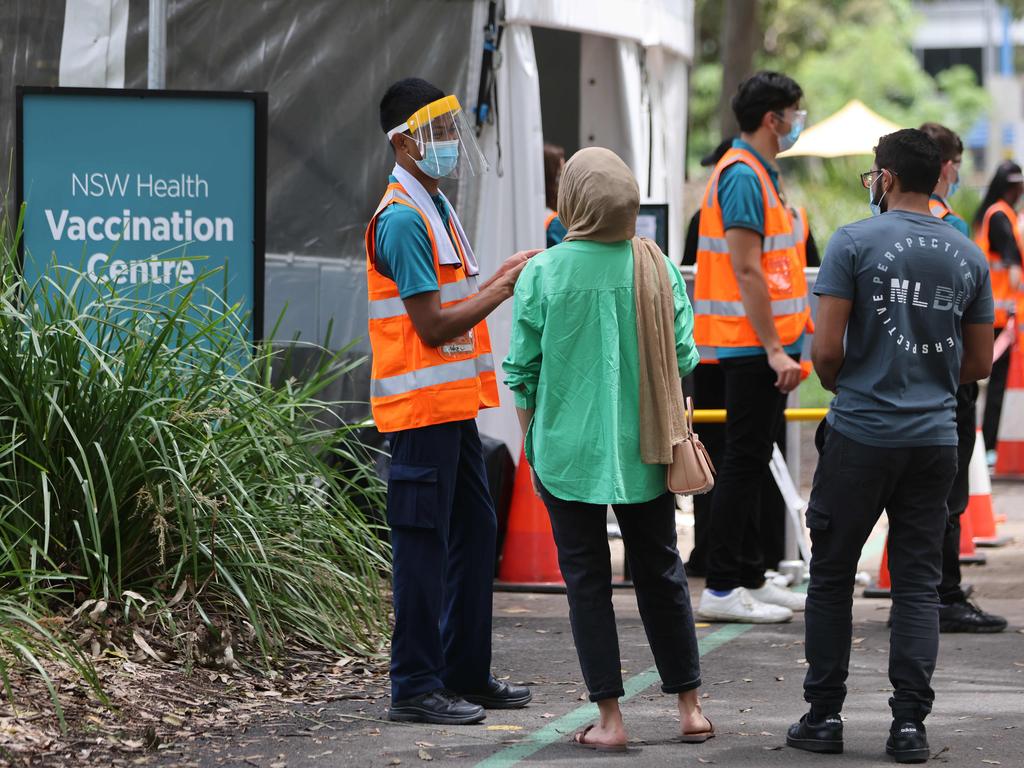Myocarditis, or inflammation of the heart muscle, and pericarditis, or inflammation of the lining around the heart, are serious but rare side effects associated with mRNA vaccines.

According to the TGA, myocarditis – which it describes as “very rare” – is reported in about one to two out of every 100,000 people who receive Pfizer and two to three out of 100,000 who receive Moderna.
But it is more common after the second dose in teenage boys at 12 cases per 100,000 for Pfizer and 17 per 100,000 for Moderna, and young men under 30 at six per 100,000 for Pfizer and 12 per 100,000 for Moderna.
“To January 9, 2022, we have received approximately 950 reports of suspected adverse events identified after a third or booster dose,” the TGA said.
The TGA says it has also received about 3000 reports of adverse reactions after vaccination in children and adolescents.
“Reports of more serious effects following vaccination in children in the US were extremely rare with 100 reports from 8.7 million vaccine doses – the most common were fever, vomiting and in some cases seizures,” it said.
As of January 9, from 28.4 million doses of Pfizer and 2.1 million doses of Moderna, there have been 467 cases of likely myocarditis – 423 from Pfizer and 44 from Moderna – and a further 1048 cases classed as “suspected” myocarditis – 952 from Pfizer and 96 from Moderna.
It comes after Australia’s chief medical officer Paul Kelly said a fourth booster dose was on the cards.
Professor Kelly said the Government’s vaccine advisory group, the Australian Technical Advisory Group on Immunisation (ATAGI), would “absolutely” consider the possibility.
“[ATAGI] is continuing to meet weekly. They will absolutely deliberate on fourth or subsequent doses,” Prof Kelly told reporters in Canberra on Saturday.

Earlier this month, Israel became the first country to begin rolling out a fourth dose of the vaccine.
Denmark and Chile have also begun rolling out a second booster to people with risk of serious illness.
However, there is growing pushback to boosters, including from the World Health Organisation (WHO) and the European Medicines Agency (EMA).
Last week, the EMA said there was still no data supporting the need for a fourth dose, and warned frequent boosters could lead to “problems with immune response”.
“While use of additional boosters can be part of contingency plans, repeated vaccinations within short intervals would not represent a sustainable long-term strategy,” EMA vaccine strategy chief Marco Cavaleri said at a media briefing, according to Reuters.
“[Boosters] can be done once, or maybe twice, but it’s not something that we can think should be repeated constantly.”
That came as WHO warned a vaccination strategy “based on repeated booster doses of the original vaccine composition is unlikely to be appropriate or sustainable”.
The UK’s head vaccine adviser, Professor Sir Andrew Pollard, who helped develop the Oxford-AstraZeneca vaccine, also called for an end to ongoing mass vaccination.
“It really is not affordable, sustainable or probably even needed to vaccinate everyone on the planet every four to six months,” Prof Pollard told BBC Radio 4’s Today program. “In the future, we need to target the vulnerable.”
Pfizer chief executive Albert Bourla last week said two doses of its current Covid-19 vaccine offer “very limited protection, if any” against the Omicron variant, while three doses “offer reasonable protection against hospitalisation and deaths
